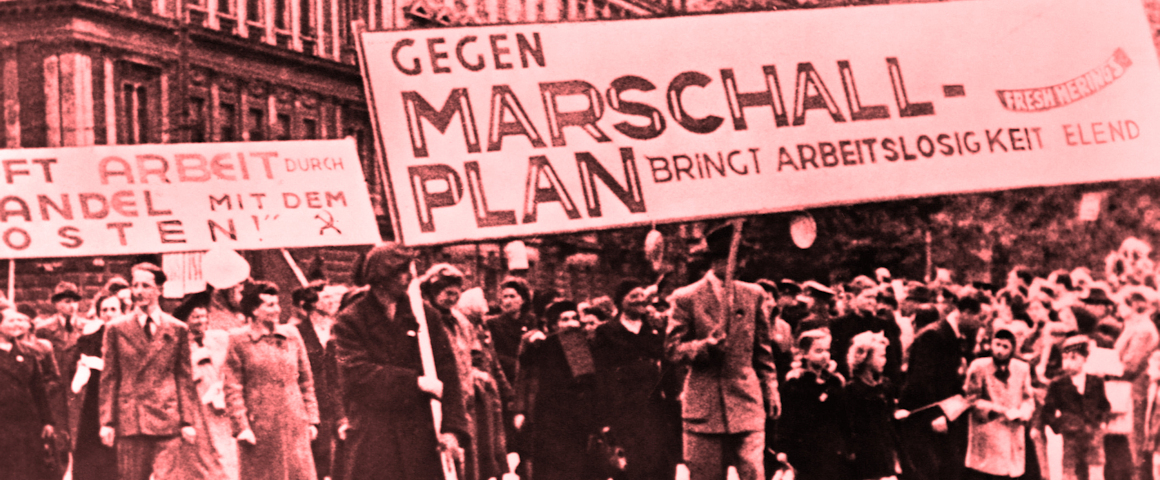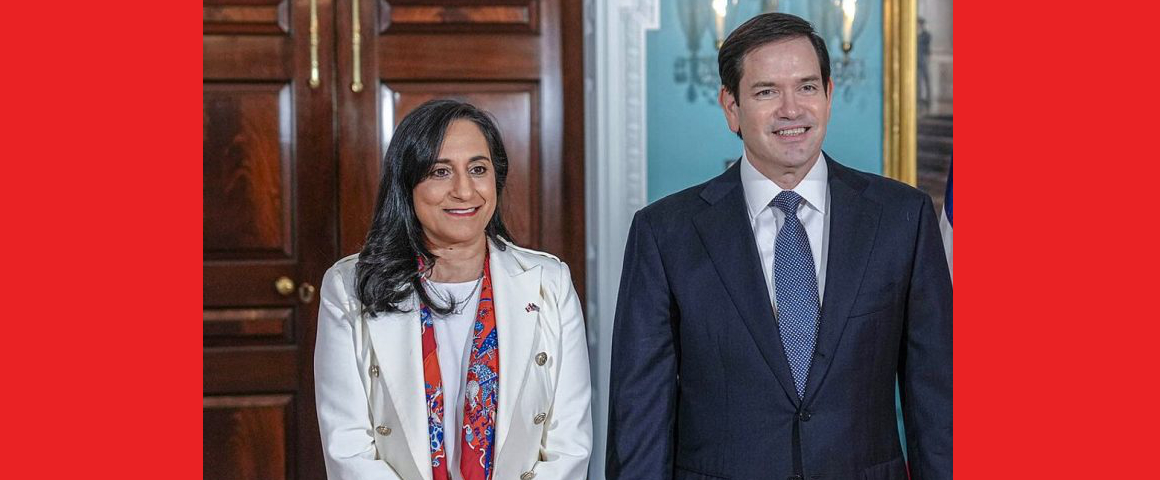Capitalism’s new, yet very old, “Great Idea” for Europe
By Dimitris Koutsoumbas
The outbreak of the pandemic, its rapid spread and its profound consequences for human life have brought to the surface great problems which, of course, pre-existed but which have emerged today in a loud and tragic way. Big contradictions and contrasts are even more evident in all aspects of social, economic, political, cultural life and reality, in each individual country and internationally.
The developments we have seen over the last month show and once again confirm that the real danger for all the peoples of the world is capitalism at its highest stage, imperialism. It not only goes against the needs of the people and social development generally, but it constantly causes widespread, irreparable damage in all sectors due to the sharpening of its contradictions. Today, it is indisputable that people’s health, care, protection and security are incompatible with capitalist profit and the capitalist mode of production. Either a solution will be provided that is based on the real needs of the people, or the people will suffer – they will live in miserable conditions, they will constantly pay out of their own pockets so that capitalism’s chosen few will prosper. It is time to strengthen the Social Alliance, the anti-monopoly and anti-capitalist struggle, and the promise of a socialist future. The necessity and timeliness of socialism and the socialist revolution are rising to the surface and, as time passes, they will do so more urgently and with new dynamics.
Recently, competition has intensified at a European and global level over how to support the capitalist economy more effectively. The coronavirus pandemic has certainly acted as a catalyst for worsening the serious pre-existing problems in capitalism. While the current and the previous governments were celebrating “growth”, the Communist Party of Greece (KKE) warned that the problem of capital accumulation – the root cause of the crisis –has not been overcome but, in fact, has sharpened, bringing the risk of a new crisis closer. The Greek economy is even more exposed to these shocks, due to its so-called “extroversion” (the great dependence on tourism and shipping.) All previous governments – New Democracy (ND), SYRIZA and PASOK-KINAL – have waved the flag of this extroversion while undermining the country’s great productive potential, which is especially valuable and necessary in conditions such as the present, simply because it was imposed by capital and the EU.
This is the ground in which discussion for a strong state intervention in the economy – a “New Marshall Plan” – is developing. This term is used by all bourgeois forces: neoliberals, right-wing forces, social democrats of all shades and others. This shows their agreement on the need for the bourgeois states and their allies, such as the EU, to intervene with an expansionary fiscal policy, not to support the workers and the people who are again the victims in terms of health and rights, but business groups and their profitability. At the same time, this is intended to strengthen the position of European capital against its competitors such as the USA, China and Russia, in the framework of the realignments that will take place in the international imperialist system.
This confirms, once again, the fraud of “European solidarity.” The EU and the Eurozone are by nature alliances of competing states and economies that, especially in times of crisis, “bare their teeth” to one another and against their people. The collapse of already inadequate public health systems, despite the heroism of the healthcare professionals; the millions of layoffs in all countries; the overcrowding of factories at the risk of workers health, so as to not lose any profit; the competition of pharmaceutical companies and healthcare material suppliers that deprive valuable supplies; these compose the disgusting image not only of the EU but of the entire capitalist world.
It also confirms that the style of capitalist management that is selected each time is not determined by the political views of particular bourgeois governments, but by the needs and priorities of capital at any given time. Consequently, we have seen social-democratic forces like SYRIZA pursuing restrictive policies that they allegedly opposed, as well as neoliberal forces now pursuing more expansive policies which they have previously criticized. This is nothing new. Modern history is full of such examples. In any case, the common denominator is the following: it is workers who will again be called on to pay the price of new rescue packages. Workers paid for the economic adjustment memoranda and harsh austerity measures in recent years, and they will be called on to pay the new loans and deficits, together with new measures already being tried out in the “healthcare test tube” under the pretext of the pandemic.
This is what we are living through in Greece now. On the one hand, thousands of layoffs, harmful changes to employment status, workers with flexible employment relationships who are not even entitled to the meager emergency benefit of 800 euros, the destruction of self-employed professionals and farmers. On the other hand, a huge amount of money for big business and banks. This is the policy that the ND government serves. This policy, with minimal differences is also highlighted in SYRIZA’s “forward-looking” program.
This even greater convergence between ND and SYRIZA, taking place under the mantle of a false “national” responsibility and unity, may determine the political developments in the next period. When the stability of the system so requires, they put aside their now indistinguishable differences. Both hide the truth: that from this enormous crisis it is not possible for both the capital and workers to win. Someone will lose and someone will win. And this struggle for tomorrow must be organized right now by the working class and the people, with demands and goals that are born today – in the struggle for health, life, daily survival – but that also target the real opponent, capital and its governments and alliances.
Therefore, the “Great Idea” for a “new Marshall Plan” for the reconstruction of Europe – supposedly without contracts and memoranda, beneficial for both capital and workers – is completely deceptive. The parallels they make with the post-war Marshall Plan, even presenting it as quintessentially pro-people, are laughable. The American funding that flowed into ruined post-war Europe, as part of the Marshall Plan, was not an act of solidarity with the European peoples, but only a lifeline for the capitalist system itself. It was used, on the one hand, for the capitalist reconstruction of Europe, which was crucial for American exports, and on the other hand for halting socialism and the revolutionary labour movement, which emerged from World War II with increased respect among people around the world. However, this state intervention, necessary for the post-war reproduction of capital and the creation of critical infrastructure, neither interrupted the vicious cycle of crises nor ensured the prosperity of the people. The benefits, which were intended to defuse working class and popular forces, bore the stamp of social gains in the USSR and other socialist countries, as well as the struggles of the European peoples themselves.
While such an awe-inspiring rival does not exist today, unfortunately, the people will still emerge from this crisis with greater experience. The historical bankruptcy of the current exploitative system is becoming more apparent. It is up to the people to organize the struggle, their own alliances. To respond with a plan and political proposal such as are currently promoted only by the Communist Party. Advancing demands today, in the special conditions of the restrictions, and intensifying the demand tomorrow, prepares the people’s counter-attack. It cultivates a climate of readiness, rallying a broad Social Alliance with the working class at the forefront. Demanding relief measures for private and public sector employees, self-employed professionals and craftspeople, scientists, farmers, women and children; for the protection of people’s health, for education and culture; for solving the refugee issue, by restoring democratic rights and freedoms; repealing all laws that restrict trade union and political action – this goes hand in hand with exposing the causes and responsibilities, and the need for the burden of the crisis to fall on capital and not on the working class.
We demand, simultaneously, the abolition of all previous memorandum laws and recent austerity measures. The cancellation of state debt, which the people did not create but pay for dearly. And the withdrawal from imperialist alliances like NATO and the EU.
We must illuminate the only way out, which lies in the superiority of socialism – social ownership of the means of production, scientific central planning, labor participation and power – and which leads to prosperity, peace and progress.
Dimitris Koutsoumbas is General Secretary of the Communist Party of Greece (KKE). This article is abridged from one originally published in Rizospastis.




